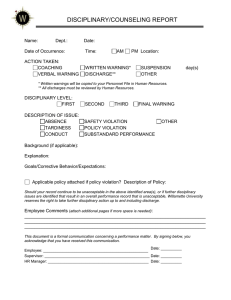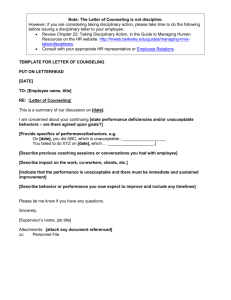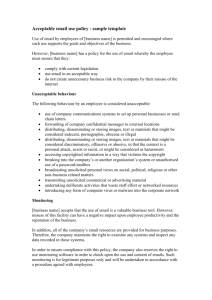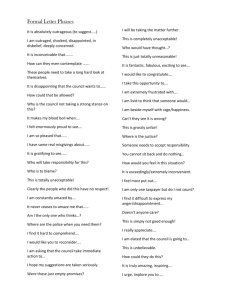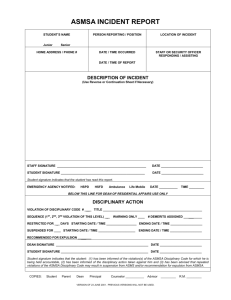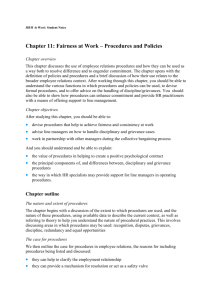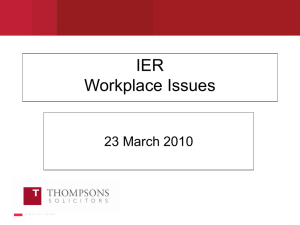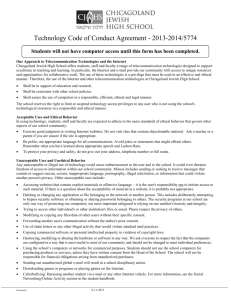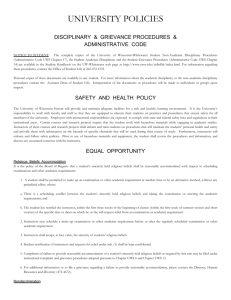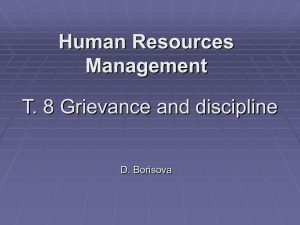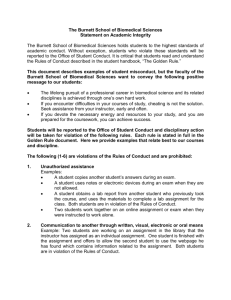1 Disciplinary Action - North Carolina Department of Public Safety
advertisement
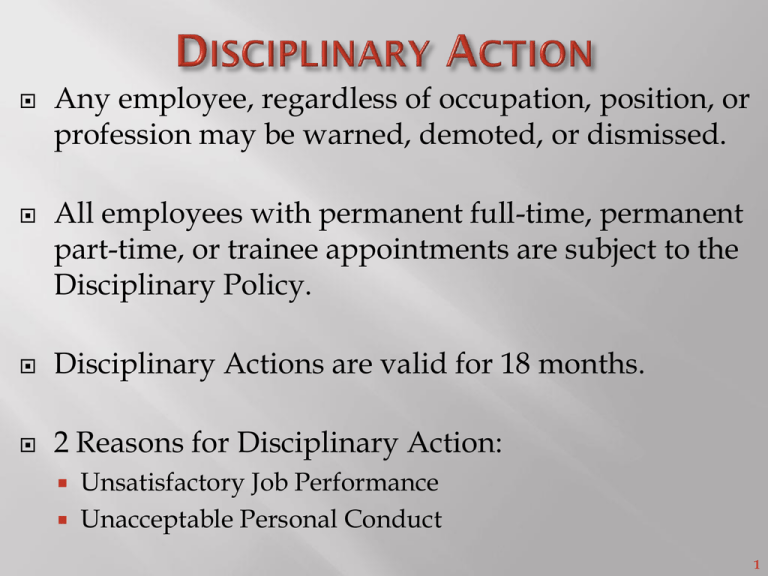
Any employee, regardless of occupation, position, or profession may be warned, demoted, or dismissed. All employees with permanent full-time, permanent part-time, or trainee appointments are subject to the Disciplinary Policy. Disciplinary Actions are valid for 18 months. 2 Reasons for Disciplinary Action: Unsatisfactory Job Performance Unacceptable Personal Conduct 1 Work-related performance that fails to satisfactorily meet job requirements as specified in the relevant job description, work standard, or as directed by the supervisor(s) or manager(s) of the work unit. 2 Conduct for which no reasonable person should expect to receive prior warning; Conduct unbecoming of a State Employee Conduct that constitutes a violation of state or federal laws; Conviction of a felony or an offense involving moral turpitude that is determined to or impacts the employee’s service to the State; The willful violation of known or written work rules; The abuse of client(s), patient(s), student(s), or a person(s) over whom the employee has charge or to whom the employee has a responsibility or an animal owned by the State; Falsification of a state application or employment document. A sub-category of Personal Conduct is Grossly Inefficient Job 3 Performance. A sub-category of Unacceptable Personal Conduct Failure to satisfactorily perform job requirements and, the act or failure to act causes or results in: death or serious bodily injury or creates conditions that increase the chance for death or serious bodily injury to an employee(s) or to members of the public or to a person(s) for whom the employee has responsibility; or, the loss of or damage to state property or funds that results in a serious adverse impact on the State and/or work unit. 4 An employee may be terminated from probationary appointment or trainee status (if not attained career status) at any time prior to being granted a permanent appointment for: Unsatisfactory Job Performance; OR Grossly Inefficient Job Performance; OR Unacceptable Personal Conduct Employees terminated from probationary/ trainee appointment have NO appeal rights unless the employee feels the actions are discriminatory. 5 Once the basic allegations and issues have been identified, management will determine whether there is a need for preliminary action pending completion of the investigation. Investigatory Placement Administrative Reassignment 6 Employees are required to cooperate fully and honestly. If you are uncooperative, provide false or purposely misleading information OR you discuss any aspect of the investigation with anyone other than the investigators, it is considered Unacceptable Personal Conduct and may result in disciplinary action up to and including dismissal. 7 It is the policy of North Carolina State government that a grievance process exist to allow for prompt, fair and orderly resolution of grievances arising out of employment. Employees have the right to present a grievance free from interference, restraint, coercion, or reprisal. 8 Dismissal, demotion or suspension without pay for lack of just cause Denial of promotion due to failure to post Failure to give priority reemployment rights after a reduction in force Denial of request to remove inaccurate/misleading info from personnel file Denial of veteran’s preference Any retaliatory personnel action for reporting improper gov’t activities Violation of the Fair Labor Standards Act(FLSA), Age Discrimination in Employment Act (ADEA), Family and Medical Leave Act (FMLA), or Americans with Disabilities Act (ADA) Unlawful workplace harassment *This is not an all inclusive list. Refer to the policy for a complete list of grievable issues 9 Informal discussion with Supervisor. If not successful, initiate Step 1 Grievance form within 15 days of the alleged occurrence. 2 Step Resolution Process Step 1: Mediation Step 2: Hearing before Hearing Panel 10
